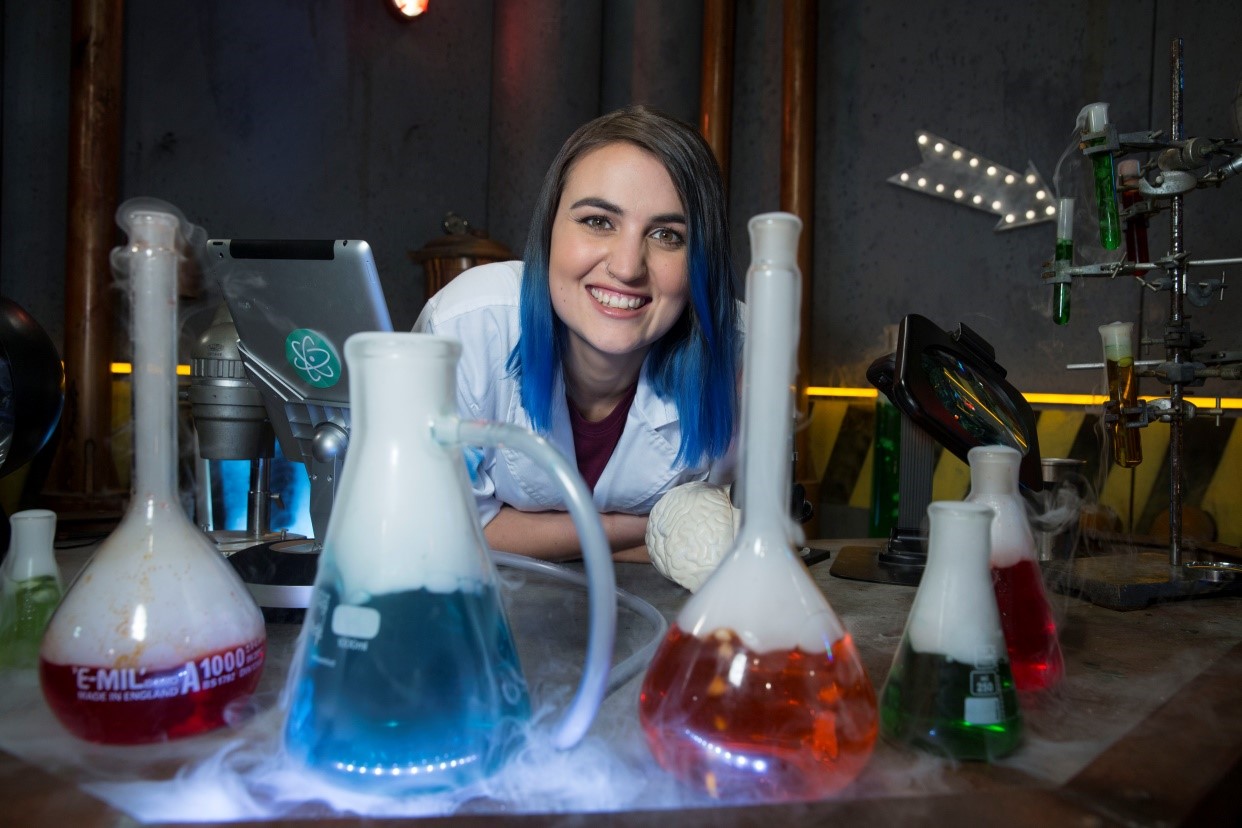Broadening the SCOPE of a science degree
Meet Lee Constable who, just a year after graduating, has a job that combines knowledge and creativity, with performing to an audience so big it’s on national television.
“Pursuing your passion and then having someone pay you for it – that’s always a good thing,” says the new host of Network Ten’s science show, SCOPE.
Lee graduated from ANU with three degrees: a Bachelor of Arts, Bachelor of Science (Honours) and a Master of Science Communication Outreach.
She says it was the Master of Science Communication Outreach that brought together everything she learnt in her undergrad, making Lee and her peers “very employable”.
It all began with Lee combining her two passions of science and drama together with an ANU double degree.
Her time studying with ANU has equipped her with research, communication and critical thinking skills that have enabled her to work in a variety of roles including: creating and hosting her own radio show Soap Box which is still on air on 2XXFM and SYN Nation, being a botanical gardens education ranger, working for the ACT Government and performing with the Questacon Science Circus.
Now Lee has channelled her scientific knowledge, drama and presenting skills together into her dream job hosting a TV show for 8- to 14-year olds that aims to increase interest and knowledge about science.
To demonstrate core scientific concepts Lee has made fireballs, slime, and teabag rockets, not all of which work perfectly on the first take. Her work definitely requires creativity and intuition as well as speedy problem solving skills.
“There are always things that don’t go as planned,” she says.
“But because it’s TV we can cut and do another take, we can try it again in different ways.”
Her science background has given Lee the skills to understand and translate complex scientific information into manageable formats for younger audiences to engage with – a definite benefit for a science-based show.
“They wanted a host for the show with a science background, and that’s because I’m not just presenting.
“I write all my own content. Each week we have a new theme and I’m constantly researching and looking into new things that I can talk to the audience about on the show.”
Lee has chosen to use her science degrees so she can influence how science is communicated to the general public. Her experiences at ANU have helped shape her belief that communication is one of the most important aspects in creating awareness and appreciation of science.
“I think communication skills are important across the board. I think particularly where you see examples of science being communicated to the public really well; you can see why it’s important.
“It’s even more evident when you see where science has not been communicated to the public very well, or where there’s mistrust for science or fear of science or even the feeling of alienation from science, so I think the communication aspect is really important.”
Apply for the Master of Science Communication Outreach and secure your dream job.

